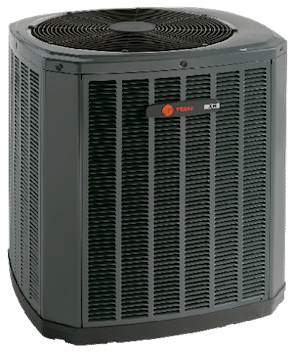Smart devices have revolutionized homes in numerous ways to help simplify the lives of millions of people. While many people see smart devices as just tools for convenience, they can save you a lot of money, too. Incorporating incredibly intuitive, convenient, and user-friendly features, smart thermostats can significantly reduce your monthly energy bills.
Remotely Control Everything
Smart thermostats aren’t just useful for when you are enjoying time at home. You can also control your smart thermostat from anywhere with an internet connection by using an app on your smartphone. If you accidentally leave the heat or air conditioning on after you leave the house, you can simply use the app to turn it off. If you want your house to be cool or warm when you get home without leaving the heat or air conditioning on all day, you can activate the system from the app shortly before you arrive.
You can also remotely activate the heating or air conditioning if you’re away but your children or other family members arrive home. You can turn turn it off once they leave. Every feature of your heating and cooling system is under your control from anywhere you happen to be, allowing you to reduce energy waste and save money.
Lock the Temperature
One of the biggest culprits in wasting energy is people altering the thermostat whenever they want without telling you. Some people change the temperature to suit their preferences. Children may play with the thermostat without realizing what they’re doing.
Manual thermostats don’t have the option to lock the temperature setting, allowing anyone with access to the thermostat to change the temperature. Smart thermostats allow you to lock the temperature setting to prevent other people from changing it without your permission. When locked, the smart thermostat either needs to be unlocked with a unique code or by the account owner, who’s linked to the thermostat via the app.
Geofencing
Smart thermostats use the GPS within your smartphone to help you save money. The system creates a virtual fence around your home. If it detects that the smartphone has left the designated area, it will slowly turn down the heating or cooling settings to prevent wasting energy. When it detects that you’re getting closer to home, it will gradually readjust the temperature.
Geofencing is especially beneficial if you have a hectic schedule or a habit of forgetting things when you leave the house. As long as your GPS is on, the energy waste will be minimal.
Schedules
Smart thermostats also allow you to set schedules to automatically control your heating and cooling and maximize energy savings. You can manually set up a schedule to change the system settings during school hours, work hours, while you’re asleep, and any other regular activities you and your family have.
The best part of the scheduling systems in smart thermostats is that they learn patterns based on your activity. For example, if you and your family always go out to dinner on Friday nights, your smart thermostat will recognize that pattern. It will suggest a new schedule addition to include this activity and automatically change the settings.
Maintenance and Problem Alerts
Some of the biggest expenses associated with your HVAC system are associated with repairs and replacements. No homeowner wants to discover that their HVAC unit has suffered from a serious problem that requires expensive repair work or even an entire replacement of the system. While you can’t prevent every problem or make your HVAC system last forever, you can avoid the most expensive repairs and maximize the lifespan of your equipment by keeping it well-maintained.
However, many homeowners neglect to do regular maintenance on their HVAC systems because they simply forget or aren’t aware of when maintenance should be done. Smart thermostats send you alerts when maintenance is due on your unit, allowing you to keep your system tuned-up, clean, and working as efficiently as possible.
In addition, smart thermostats will immediately alert you to problems detected within the unit. This allows you to rectify the issue as soon as possible and stop it from getting worse, preventing costly repairs.
Energy Monitoring and Customized Energy-Saving Guidance
Most people are only able to monitor their energy usage through their monthly energy bills. Not only is this a very inefficient manner of tracking your energy usage, but you also can’t pinpoint what’s causing spikes in energy usage to help reduce it in the future.
With a smart thermostat, you’re able to monitor your energy usage whenever you want. Many smart thermostat systems will also provide you with a breakdown of potential causes of energy usage spikes in your house. Some smart thermostats even provide you with helpful energy-saving tips that you may not have ever considered before, allowing you to save even more money.
Integration With Other Smart Devices
Smart thermostats can connect to other smart devices to improve the energy efficiency of your home. You can set your smart thermostat to adjust the blinds in your house when the temperature exceeds a certain point, reducing reliance on the air conditioner. It can also connect with other systems, such as smart home assistants, security systems, smart lights, smart plugs, and more to both increase energy savings and make your home even more convenient.
Alterations Based on Climate and Weather
Energy usage varies across the world and throughout the year due to climate and weather patterns. Many people will waste energy by setting the heating or air conditioning high and leaving it there when there are sudden changes in weather, especially in harsher climates.
In addition to your smart thermostat automatically adjusting to the climate in your area, it will monitor the local weather to suggest alterations to the heating or cooling schedule in advance. Sometimes, it will even automatically change them. Then, the smart thermostat will switch to normal settings automatically once the weather has returned to normal, preventing you from wasting energy while remaining comfortable no matter the weather.
Rebates and Discounts
Depending on where you live, installing a smart thermostat in your home may make you eligible for certain rebates and discounts from your local energy company. Contact your energy company to see if they provide any special incentives for smart thermostat installation. Check the requirements of the offers before purchasing the system to ensure that you’re eligible.
If you’re interested in learning more about how a smart thermostat can help you save money in the long run, the trusted professionals at Air Authority, A Riteway Service Company can help. We offer skilled installation services for any device you choose. In addition to smart thermostats and other home automation installation services, we provide repair and maintenance work for air conditioners, heaters, air purifiers, and much more. For additional information on any of the services we provide to the areas in and around the San Antonio, Texas area, contact us at Air Authority, A Riteway Service Company today.





